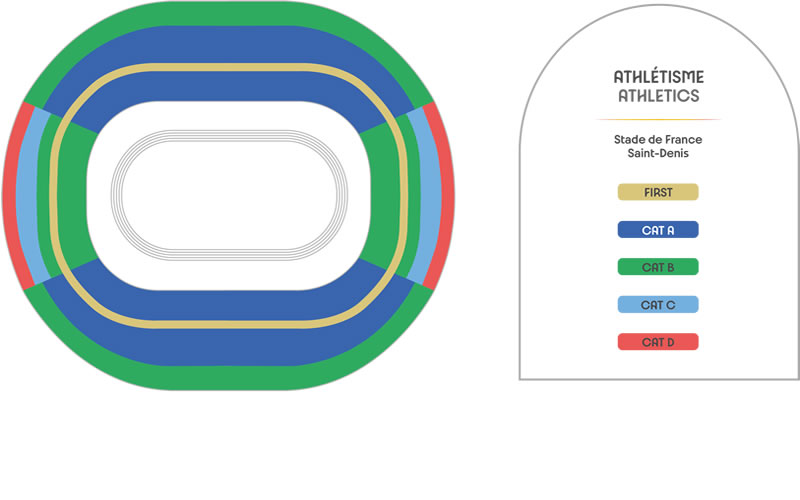ATH04 M/W/Mixed - Repechages, semi-finals, finals - Summer Olympics - Paris Olympic 2024 Olympic Athletics Tickets

Stade de France - Athletics
Olympic Athletics
Olympic Athletics is the cornerstone of the Summer Olympic Games, often regarded as the purest test of human speed, strength, endurance, and skill. Comprising a diverse range of track and field events, athletics traces its roots back to the ancient Olympic Games and has been a feature of every modern Olympics since 1896.
Athletics includes running events such as sprints, middle-distance, and long-distance races; hurdling and steeplechase; race walking; and relay races. Field events encompass jumping disciplines like long jump, high jump, triple jump, and pole vault, as well as throwing events including shot put, discus, javelin, and hammer throw. The decathlon and heptathlon test athletes’ versatility across multiple events.
Athletics has produced some of the most iconic Olympic moments and legendary athletes in history. Figures like Jesse Owens, whose four gold medals in 1936 defied racism; Carl Lewis, dominating sprints and jumps across four Olympics; Usain Bolt, the fastest man ever with multiple world records; and Florence Griffith-Joyner, who electrified the track with her speed and style, have become enduring symbols of excellence.
The sport demands not only physical prowess but also mental toughness, discipline, and strategic race execution. Events are contested on the iconic Olympic track and field stadiums, often filled with roaring crowds that elevate the drama and excitement.
Athletics continues to evolve with advances in training, technology, and global competition. New stars emerge every four years, inspiring millions and pushing the boundaries of human potential. The sport remains a universal language of competition and celebration, bringing together nations in the spirit of fair play and achievement.
At the core of the Olympic spirit, athletics embodies the pursuit of speed, power, and endurance—the timeless qualities that define sport and unite the world every Olympic cycle.
